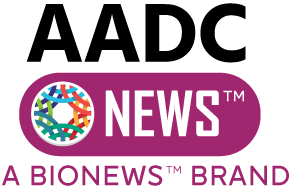Forum will highlight latest in ASO treatment for ultra-rare diseases
Foundation provides therapy to patients with diseases like AADC deficiency

The N-Lorem Foundation is gearing up for its Nano-Rare Patient Colloquium 2025 — the third year of its annual event to share the latest developments related to antisense oligonucleotide (ASO) treatment for individuals with extremely rare diseases.
The forum, which will take place Oct. 20-21 in Cambridge, Massachusetts, and online, will feature more than 40 panelists and presenters, a scientific poster session, a reception, and an art auction — for which bidding is already underway. Registration is free, and updates will be provided on social media.
The foundation, which has more than 35 corporate partners, develops personalized ASO therapies for patients with so-called nano-rare diseases, providing such treatment for free, and for life.
“We have more than 35 patients being treated with ASOs discovered for them,” Stanley T. Crooke, MD, PhD, N-Lorem Foundation’s founder, chairman, and CEO, said in an organization press release. “With one patient treated [for] almost three years and many approaching two years in treatment, we are beginning to learn about the long-term value of bespoke ASO treatment in nano-rare patients.”
ASOs are short, lab-made DNA or RNA molecules designed to bind specific messenger RNA (mRNA) molecules — intermediate molecules derived from DNA that cells use as a template to produce proteins.
Such therapies can be used to correct the activity of a gene by increasing or reducing protein production, or by ensuring that a functional protein is produced. ASO treatment is particularly useful for individuals with rare and ultra-rare diseases, generally defined as those affecting no more than 30 people worldwide.
One such disease is aromatic L-amino acid decarboxylase (AADC) deficiency, an extremely rare condition caused by mutations in the DDC gene. Those mutations result in the production of low levels or a faulty version of the AADC enzyme. That enzyme is necessary for producing certain neurotransmitters, or molecules that nerve cells use to communicate.
Foundation has received over 380 applications for ASO treatment
To date, N-Lorem has evaluated more than 380 applications for treatment, with more than 200 patients approved.
In the colloquium, hosted by Biogen, researchers and healthcare providers will share the latest developments on the treatment of rare diseases, according to the foundation.
The goal is to provide a comprehensive overview of the nonprofit’s efforts in nano-rare diseases. Among the highlights are advances in ASO technology developed at N-Lorem, the safety of ASO developed through the foundation’s processes, and clinical insights from patients on treatment.
This meeting will share important lessons about nano-rare patients and the effects of bespoke treatment in these patients. … These lessons are relevant not only to nano-rare patients but, over time, may revolutionize the way we think about health and disease altogether.
Colloquium sessions will also address whether developmental delays can be reversed with treatment, as well as clinical knowledge gained from patients’ experiences with treatment. All presentations and panel discussions will be recorded and available on the foundation’s website after the event.
Patients and families will also contribute their perspectives based on personal experiences from their diagnoses and treatment journeys.
“Thanks to the extraordinary demand we have experienced, this meeting will share important lessons about nano-rare patients and the effects of bespoke treatment in these patients,” Crooke said. “These lessons are relevant not only to nano-rare patients but, over time, may revolutionize the way we think about health and disease altogether.”







